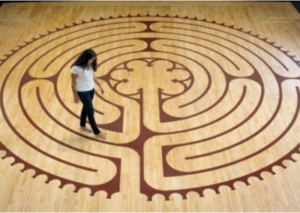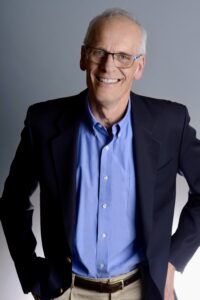Classes & Workshops
Renew thinking, change habits, and broaden perspectivesWorkshops Offered
The overview below describes workshops that are available. I am open to discuss any needs for workshops that are not listed below. The workshops below can be mixed and matched depending on the needs of an audience. My workshops are of a conversational nature and include insightful exercises and experiences. Some workshops can be delivered remotely, while others are best offered in-person. Contact me so that I can tailor my offerings to your needs.
Workshops for career-management or self-management
Workshops for educators
Workshops for a general audience
The Trainer
Workshops for career-management or self-management
Managing activities for managing time (3 hours, depending on scope)
Many professionals struggle with time management and work-life balance. In contrast to what many of us think, time just flows and there is no time to manage. What we can manage is our activities. This requires setting priorities, choosing, and saying “no” when that is called for. We analyze what comes in the way of saying “no”, in particular the guilt trap. We discuss this in the context of interdependence.
Managing emotions (3 hours, depending on scope)
Emotions are an important driver of actions and experiences. For this reason, managing emotions is essential for our wellbeing and professional performance. We focus on the distinction between thinking patterns that drag us down and patterns that lift us up. Our emotions are shaped by our beliefs and by our past experiences. We cover the concept of mental hygiene, techniques for managing emotions, and for reframing beliefs.
Managing conversations (3 hours, depending on scope)
Conversations are essential for interacting with others, yet we often are not effective in managing conversations. True listening is essential for having two-way conversations, and we cover listening skills. The distinction between dialogue and debate is essential, and we discuss ways for having productive conversations. Engaging in difficult conversations and negotiation is particularly important, since many of us are not comfortable with this type of interactions.
Managing self-care (2 hours)
In the busy-ness of modern life one can easily get wrapped up in chasing activities. In process we can easily forget taking care of ourselves. Ignoring self-care is not good for our wellbeing, and it may paradoxically decrease our productivity because of tiredness, irritability, and lack of concentration. We examine barriers to practicing self-care, that include real or perceived pressure from colleagues, and a belief that practicing self-care amounts to being selfish. We discuss indicators that tell us when doing more can be counterproductive.
Finding your voice and speaking it (1 hour)
Expressing freely is important for our wellbeing and for functioning well in an organization. This requires that we know what we want to express in our professional and personal lives, and that we find ways to fully and freely express.
Effective negotiation practices (2 hours)
Negotiation is an integral part of professional life. In professional and personal life numerous occasions arise where we need to negotiate, and it is important that we can stand up for our interests by effective negotiation. Yet many of us are not comfortable negotiating or don’t know how to negotiate. In this workshop we explore internal barriers we may face to enter a negotiation. We cover the basics of negotiation, which involve knowing what you want or need, and conversation methods that encourage the other party to move towards your needs while maintaining a positive dialogue. We discuss simple practices that help becoming more comfortable with negotiation.
Oral communication, the art of creating a captive audience (3 hours, depending on scope)
Often, we get the chance to communicate our work through an oral presentation. Such a presentation offers a brief window in time to get our message across … or not. Yet many oral presentations are confusing, or they feel like the speaker is force-feeding the audience with information. Giving an engaging and compelling oral presentation is an art, this art can be learned by keeping a few principles in mind and by practicing these principles. In this interactive workshop we go over the principles of giving an effective oral presentation that an audience remembers.
Writing with ease and grace, getting out of the way what comes in the way (2 hours)
Communication often is a challenge. Writing and public speaking are most compelling when done with ease and grace, but in practice there may be hurdles in the way. Some of these hurdles involve a lack of practical skills, but there may also be personal hurdles in communicating with ease and grace. Examples of such hurdles include the curse of perfection, a wish to not be vulnerable and be seen, a lack of clarity, or a sense of having to do it all alone. In this interactive workshop we discuss the barriers we encounter in effective written communication, and ways to overcome these barriers.
Just be kind!
Kindness is a virtue that helps create a harmonious atmosphere. Yet kindness is a virtue that sometimes falls by the wayside. There is a variety of reasons for this, we may feel that kindness is unprofessional, we may feel vulnerable if we are kind and personable, or we may be overwhelmed by pressures that we are under. We will examine barriers to kindness, and will explore ways in which we can give shape to kindness in a professional environment by keeping our mind clean of toxic thoughts and by practices for kindness.
“I had the pleasure to be an invited speaker at the recent  Development Day program at Marshall B Ketchum University in Fullerton, CA, alongside Roel Snieder. Roel’s opening keynote was a master class in how to engage an academic audience. His topic was kindness, and he opened with concrete stories that got attendees thinking and responding right away, then pulled back the curtain to share the neuroscience and psychology behind the methods that he advocated the audience try out. By the time he wrapped up—with stories about entering an unusual foot race alongside a donkey running partner and about the benefits of meditative practice—I witnessed 180 busy academics utterly silent and reflective as everyone engaged in a guided meditation together. Roel is an engaging, effective, and original speaker, and I’m glad I got to experience him doing his work.”
Development Day program at Marshall B Ketchum University in Fullerton, CA, alongside Roel Snieder. Roel’s opening keynote was a master class in how to engage an academic audience. His topic was kindness, and he opened with concrete stories that got attendees thinking and responding right away, then pulled back the curtain to share the neuroscience and psychology behind the methods that he advocated the audience try out. By the time he wrapped up—with stories about entering an unusual foot race alongside a donkey running partner and about the benefits of meditative practice—I witnessed 180 busy academics utterly silent and reflective as everyone engaged in a guided meditation together. Roel is an engaging, effective, and original speaker, and I’m glad I got to experience him doing his work.”
Dr. Thomas Tobin, Center for Teaching, Learning, & Mentoring, University of Wisconsin-Madison
Workshops for educators
Teaching with Heart teacher training (8 hours)
The students that we educate in higher education in science and engineering go out into the world, bringing their energy and skills to the development of new creations. Since we are working with young people in the formative years of their professional and personal development, and since the state of wellness of college students is worrisome, we need to ask ourselves the question how do we prepare our students at a personal level for their future? I discuss the importance of educating students as whole students, and present simple steps, that are not time-consuming, that help create a learning environment where we assist students in their personal growth and wellbeing. This amounts to Teaching with a Heart, a mindset aimed at seeing the full person in students, facilitating students’ growth of an integrated personality, and showing up as teachers with an attitude of care. And when we do this, we don’t just foster the growth of better people, we grow better scientists and engineers too! The workshop series consist of the following sessions:
- How do you show up as a teacher, and why does it matter?
- Bringing authenticity and compassion into the classroom
- Supporting students emotionally
- Developing intention and attention
Teaching with Heart Practices (1 hour)
Bringing care to the higher education classroom is not difficult, but it does require a combination of a caring mindset with a toolbox of practices. We call this Teaching with Heart. I discuss the importance of bringing a caring mindset to the higher education classroom, impediments that may come in the way, and give an overview of Teaching with Heart practices. Some of these practices are easy to implement and take almost no time, others require habituation, and some practices require a sustained effort. These practices are actionable and provide a toolbox for expressing care in the higher education classroom.
Advising with Heart Practices (1 hour)
Bringing care to academic advising is not difficult, but it does require a combination of a caring mindset with a toolbox of practices. I discuss the importance of bringing a caring mindset to academic advising, impediments that may come in the way, and give an overview of Advising with Heart practices. These practices are actionable and provide a toolbox for bring care to academic advising.
Uncovering beliefs and intentions for inclusive teaching (2 hours)
Diversity and inclusion are thorny topics. Dr. Martin Luther King delivered his I have a dream speech 60 ago, and we still have much progress to make. Inclusion is particularly difficult because it calls us to let go of deeply engrained notions and practices, and therefore inclusion calls for personal change. While most of us are in favor for change, we often are reluctant to changing ourselves. Making such a personal change involves an examination of our beliefs, a reframing of these beliefs where inclusion calls us to do so, and to develop intentions to make inclusion a reality. In this conversational workshop we examine out attitude towards inclusion and formulate intentions and actions for creating an inclusive classroom environment.
Workshops for a general audience
Science and Spirituality
Our modern scientific worldview leaves little space for the big spiritual questions that arise in most of us. In this class we explore the interface of science and spirituality, and we discuss questions such as the following. How did how our worldview change in history? Is the universe a mindless machine? What does quantum mechanics teach us about this? What is the connection between mind and matter? (Does mind matter? Does matter mind?) Why can humans be devils or saints? What are the roles of rational thinking and intuition? This eclectic class is a true exploration, we will dive together in one or more of the following topics:
- A sense of wonder
- The Universe as a machine
- The Quantum Universe
- The biology of transcendence
- Mind, matter, and consciousness
- The mind-body connection
- The power of mind
- Calling on intuition
- The mystical experience



Carbon Capture and Sequestration; Panacea or Indulgence? (1 hour)
Current events show that climate change is upon us. The mechanism of global warming was already explained by Arrhenius in 1896. An alternative to reducing greenhouse gas emissions by burning less fossil fuels is to capture CO2 and then store it in the subsurface. This technology relies on our expertise in injecting fluids in the subsurface and to monitor the fluids and their fate in the subsurface. In the geophysics community this technology has been presented as “a well accepted leading mitigation strategy against climate change” (The Leading Edge, 20, 224, 2021). In order to understand to what extent this optimism is warranted one needs to consider the following factors: (1) the amount of CO2 that needs to be captured and sequestered to have a significant impact on climate change, (2) the cost of CO2 capture and sequestration compared with other technologies for avoiding CO2 emissions, (3) the reason why CO2 capture is expensive and energy-intensive, and (4) the extreme accuracy with which CO2 in the subsurface needs to be monitored. As with many complicated problems, the devil is in the details, and we need to understand these details to assess the impact of carbon capture and storage that can be expected.
To follow up and for more information:
Email: roel@roelcoaching.com
Website: www.roelcoaching.com
The Trainer
 Roel Snieder is Professor of Professional Development Education at the Colorado School of Mines, as well as a licensed Freedom Coach. As a scientist, he worked for many years with people who tend to live in their head, relying on their analytical thinking. Roel has personally experienced the process of transformation to the fullness of living from the head and from the heart. Over the years he has counseled many people in this process and developed and taught classes on Wellness and on Science and Spirituality at Mines. Roel wrote a book on living a harmonious and fulfilling life for scientists and engineers, The Joy of Science: Seven Principles for Scientists Seeking Happiness, Harmony, and Success. He received the Beno Gutenberg Medal for his research from the European Seismological Society. He received the Outstanding Educator Award from the Society of Exploration Geophysicists, and the Ange Melagro Prize of the McBride Honors Program at the Colorado School of Mines for his outstanding class Science and Spirituality.
Roel Snieder is Professor of Professional Development Education at the Colorado School of Mines, as well as a licensed Freedom Coach. As a scientist, he worked for many years with people who tend to live in their head, relying on their analytical thinking. Roel has personally experienced the process of transformation to the fullness of living from the head and from the heart. Over the years he has counseled many people in this process and developed and taught classes on Wellness and on Science and Spirituality at Mines. Roel wrote a book on living a harmonious and fulfilling life for scientists and engineers, The Joy of Science: Seven Principles for Scientists Seeking Happiness, Harmony, and Success. He received the Beno Gutenberg Medal for his research from the European Seismological Society. He received the Outstanding Educator Award from the Society of Exploration Geophysicists, and the Ange Melagro Prize of the McBride Honors Program at the Colorado School of Mines for his outstanding class Science and Spirituality.
Contact Roel for more information
Email: roel@roelcoaching.com
Website: www.roelcoaching.com
Request a Consultation
Reach out with questions or to schedule a complimentory consultation.
